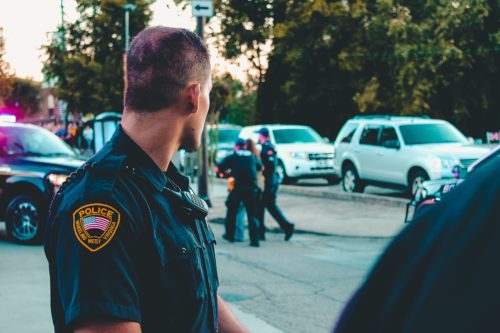
Police officers are tasked with the job of keeping their towns and cities safe. While this is true, the Constitution, in conjunction with other federal and state laws, limits how far they can go in performing their duties. There are many officers who are dedicated to acting ethically in their job, however, there are also others who take advantage of the power they have. In the event that police misconduct takes place, the law states that individuals are able to file a lawsuit. Continue reading below to learn more and contact an attorney if you believe your rights have been infringed upon.
What is Police Misconduct?
It is important to know that there are situations in which a police officer has no other choice but to use force when they are dealing with an individual who broke the law. This may be done with certain tools that make it easier to subdue a dangerous person. However, officers are required to not abuse the power they have or overstep their authority. In the event that an officer uses the tools they are allowed on a person who is not posing a serious threat, there may be a case for police misconduct.
What is Police Immunity?
Police officers are immune from lawsuits for the performance of their job. It is important to know that negligence and the failure to exercise due care is not enough to be found liable in a situation. However, this is only in typical police-suspect interactions. If willful police conduct that violates constitutional rights takes place, civil rights are brought into question.
Civil Rights Laws and Police Misconduct
In the event of police misconduct, victims primarily rely on a statute of civil rights law known as Section 1983. This was originally passed as part of the Civil Rights Act of 1871 to curb oppressive conduct by government and private individuals in vigilante groups. The statute makes it unlawful for anyone acting under the authority of state law to deprive another person of their rights under the Constitution or federal law. Common claims brought against police officers are:
- False Arrest/Imprisonment: Individuals bringing this claim assert that the police violated their Fourth Amendment right against unreasonable seizure. If the officer had probable cause to believe they committed a crime, the arrest is reasonable and the amendment has not been violated. It is important to know that even if the information the officer relied upon during the arrest turns out to be false, they are not liable if it was believed to be true at the time of the arrest.
- Malicious Prosecution: This claim asserts the officer wrongly deprived the victim of the Fourteenth Amendment right to liberty. To win their claim, the victim must show the defendant police officer commenced a criminal proceeding, the proceeding ended in the victim’s favor, there was no probable cause, and the proceeding was brought with malice toward the victim.
- Excessive Force: Whether or not the officer’s use of force was reasonable depends on the facts and circumstances surrounding the case. If the amount of force was reasonable, it does not matter if the officer’s intentions were bad. However, if the officer had good intentions but used unreasonable force, it is important to know the claim will not be dismissed.
- Failure to Intervene: Officers are required to protect individuals from constitutional violations by fellow officers. If an officer witnesses misconduct, they may be liable for failing to intervene.
Contact our Firm
A personal injury accident can have a great impact on your life and your bank account. At Katter Law Firm, we believe that everyone should be held liable for his or her own negligence; you should not have to bear the burden of someone else’s mistakes. To learn more or to schedule a free consultation, visit us online or call us today!
